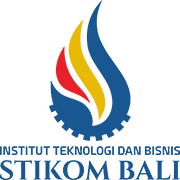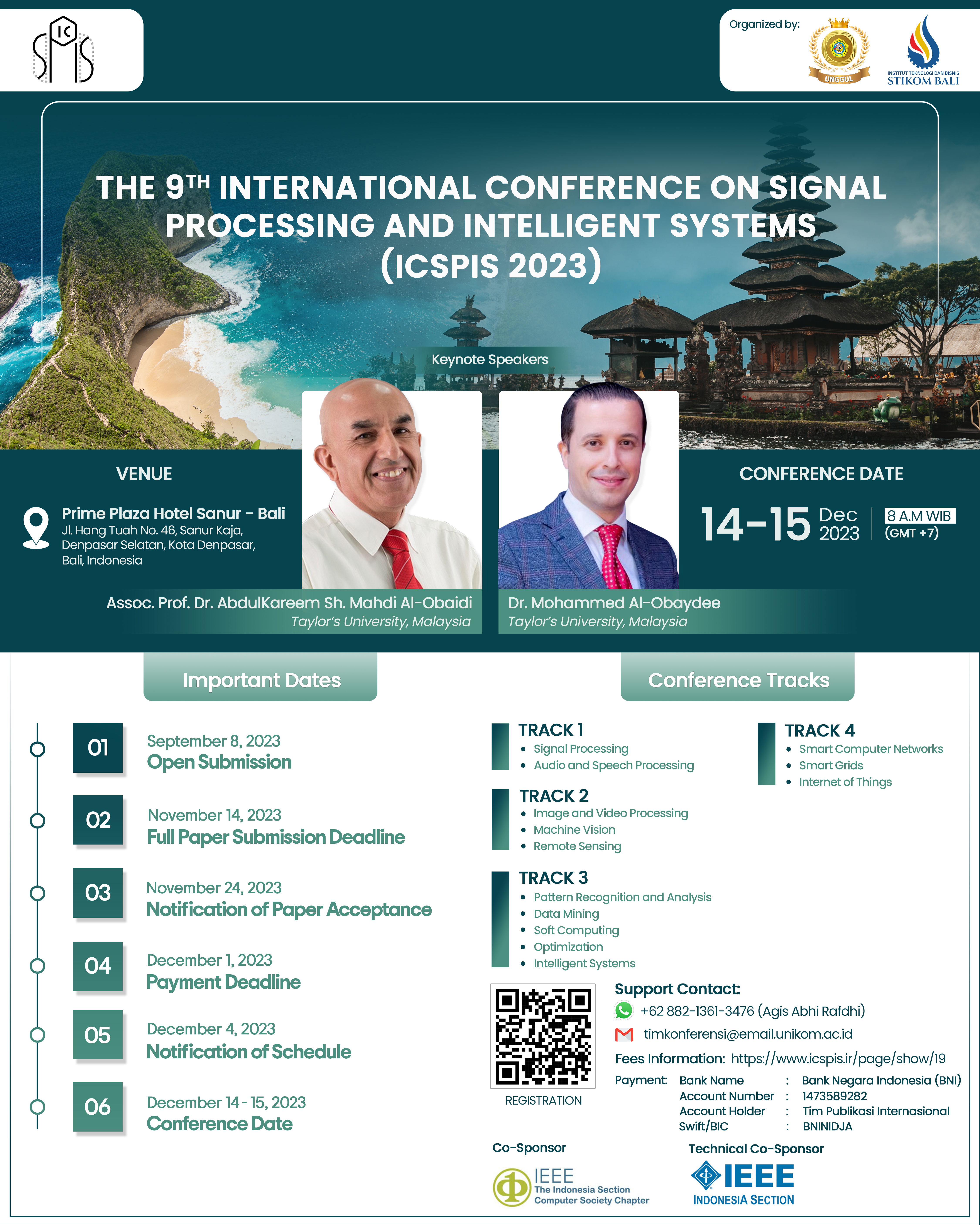The scientific community has witnessed substantial growth in digital signal processing and intelligent systems in recent decades, with ever-increasing applications in technology. The 9th International Conference on Signal Processing and Intelligent Systems (ICSPIS 2023) will be held on December 14–15, 2023, hosted by Universitas Komputer Indonesia (UNIKOM) to provide a platform for collaboration and exchange of knowledge among scholars and researchers on the topics of Signal Processing and Intelligent Systems.
Track 1
- Signal Processing
- Audio and Speech Processing
Track 2
- Image and Video Processing
- Machine Vision
- Remote Sensing
Track 3
- Pattern Recognition and Analysis
- Data Mining
- Soft Computing
- Optimization
- Intelligent Systems
Track 4
- Smart Computer Networks
- Smart Grids
- Internet of Things
The ICSPIS is a live conference that relies on presentations during sessions, as well as subsequent discussions held after the talks and during breaks. Authors who fail to present their papers create gaps in the program, which is unacceptable for the conference audience.
ICSPIS strives to maintain a balance between ensuring a high-quality conference and being fair to both authors and audience members. Therefore, ICSPIS has the right to exclude authors who do not present their papers at the conference from receiving a presenter's certificate.
If the authors have, or anticipate, unforeseen circumstances endangering or preventing the presentation, the Committee must be contacted immediately. Any alternative arrangements require approval by the committee.
One-day tour from ANS-Holidays.
Full papers submitted to the conference will be peer-reviewed. All of the accepted, registered and presented papers will be submitted for inclusion into IEEE Xplore subject to meeting IEEE Xplore’s scope and quality requirements.
Selected best papers from the conference have opportunity to be published in :
The conference is being held in a hybrid format. This unique format allows researchers to still present their papers, even if they cannot attend the conference in person. It provides them with the opportunity to remotely participate and share their research with the conference attendees.
The conference is being held in a hybrid format. This unique format allows researchers to still present their papers, even if they cannot attend the conference in person. It provides them with the opportunity to remotely participate and share their research with the conference attendees.
The accepted and presented papers will be submitted to the IEEEXplore digital library, for possible publication.

Full Paper Submission Deadline: Oct. 31, November 14, 2023 (Extended)
Notification of Paper Acceptance: Nov. 24, 2023
Payment Deadline: Dec. 1, 2023
Notification of Schedule: Dec. 4, 2023
Conference Date: Dec. 14 -15, 2023

Postal Address: Universitas Komputer Indonesia (UNIKOM) , Jl. Dipatiukur No. 112-116, Kota Bandung,
Jawa Barat 40132, Indonesia
Tel: 022-2532009, 022-2504119
Fax: 022-2533754
Email: timkonferensi@email.unikom.ac.id
Conference Correspondence: Dr. Senny Luckyardi S.P, M.M
July 12, 2023


